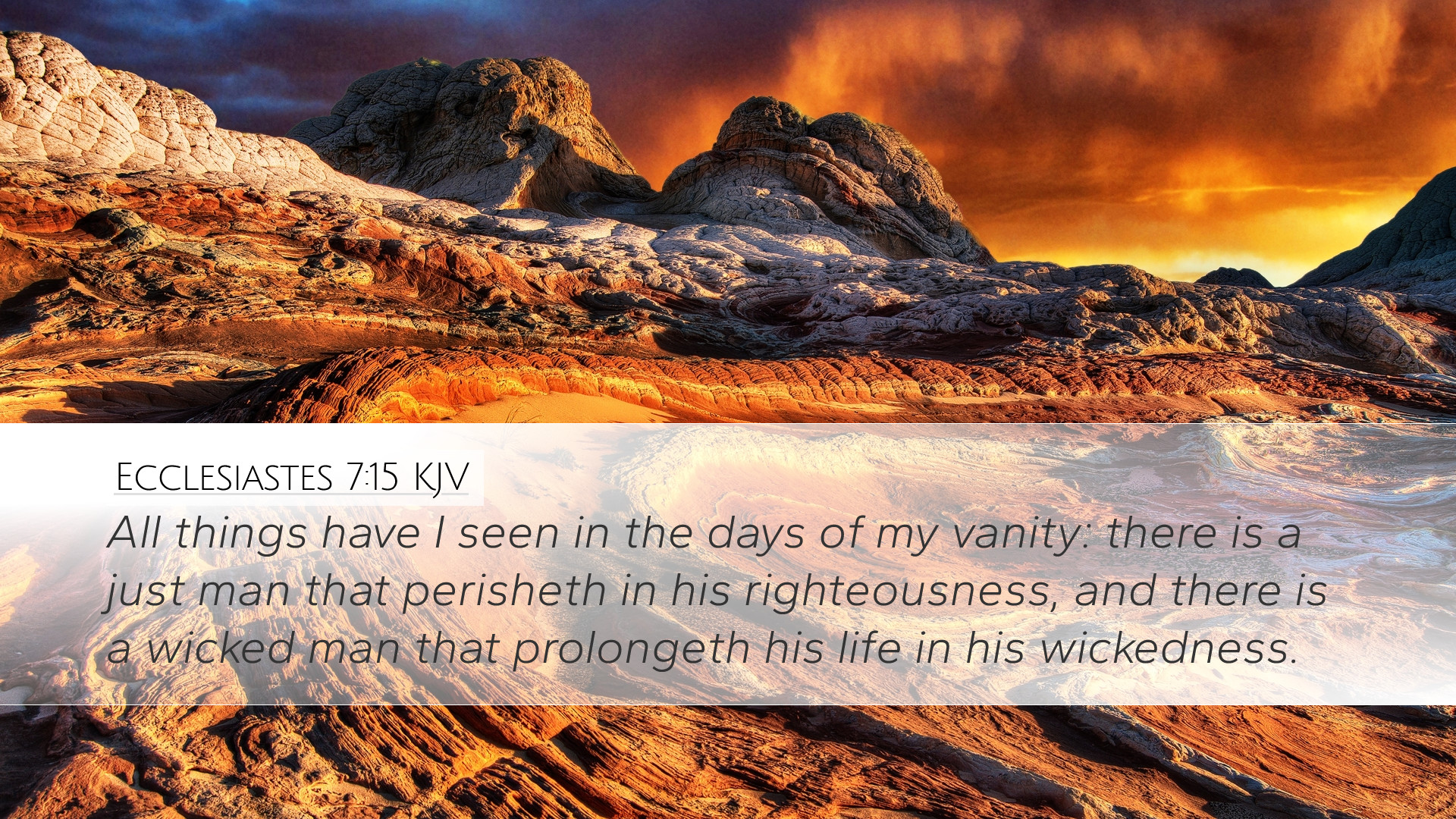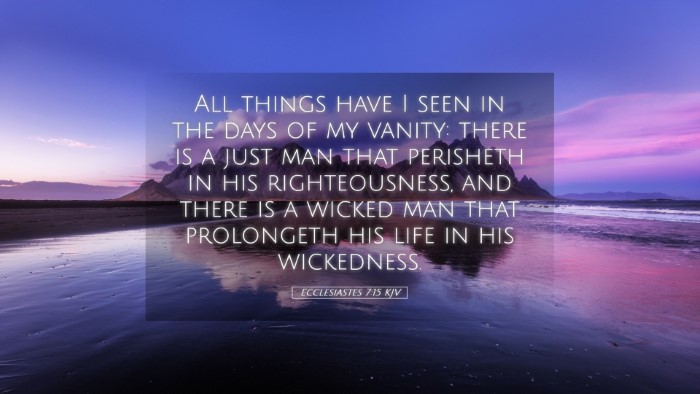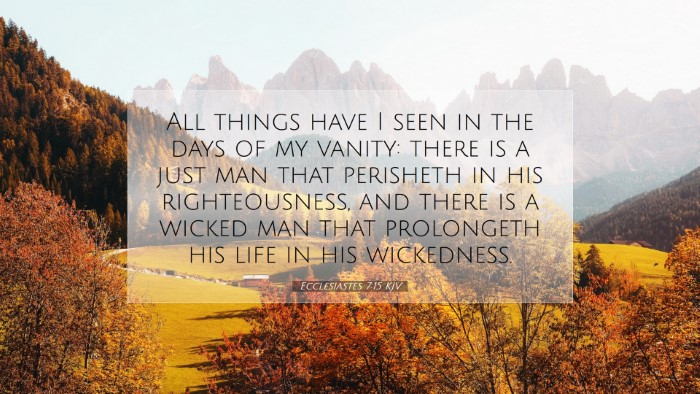Commentary on Ecclesiastes 7:15
Ecclesiastes 7:15 states: "All things have I seen in the days of my vanity: there is a just man that perisheth in his righteousness, and there is a wicked man that prolongeth his life in his wickedness." This verse presents a profound reflection on the seeming injustices of life that confound the observer, particularly in relation to the motivations behind human actions and the exigencies of divine providence.
Contextual Overview
The Book of Ecclesiastes is attributed to Solomon, traditionally seen as a reflection on the meaning of life and the vanities that accompany it. The writer, grappling with the complexities of existence and observed realities, reveals a recurring theme of the uncertainty in the moral order of the world.
Insights from Commentators
Matthew Henry
Matthew Henry emphasizes the paradoxical observations surrounding righteousness and wickedness in this verse. He notes that a righteous person can suffer while a wicked person seems to prosper. He suggests that this serves to highlight human perplexity regarding the moral order. “As grace does not always secure the righteous from afflictions, so this serves to remind us of the transient nature of life and our ultimate dependence on God’s sovereign will.”
Albert Barnes
Albert Barnes elaborates on the seeming randomness in the outcomes of lives lived righteously versus those lived wickedly, seeing this as a microcosm of the broader human condition. He offers a pointed reflection on the idea that worldly success does not correlate with divine approval or moral integrity. He concludes, “The observations of the Preacher remind us that we ought not to judge God's providence by the mere appearances in life. The righteousness of God does prevail, though it is often veiled in mystery.”
Adam Clarke
Adam Clarke provides a comprehensive analysis of the theological implications within this verse, suggesting that the righteous sufferings can serve spiritual purposes, including refinement and development of character. He asserts, “The righteous may suffer in this life, but their reward is guaranteed in the afterlife, an ultimately fulfilling hope.” Clarke highlights that God’s oversight is not always readily apparent but is assured over all human undertakings.
The Theological Implications
This verse invites deeper theological reflection on the nature of God’s justice and mercy. The apparent victories of the wicked raise significant questions about divine retribution and human morality. The commentators collectively emphasize the distinction between earthly appearances and eternal truths.
- Moral Complexity: The realities of life often contradict our understandings of justice. The righteous may endure hardships while the wicked may experience unmerited success.
- Divine Sovereignty: God’s sovereignty encompasses all, even the suffering of the righteous and the prosperity of the wicked. This serves as a comfort in times of distress.
- Hope Beyond Earthly Life: For believers, the promise of eternal life restores hope in circumstances that seem unjust, reiterating that ultimate justice will prevail in God’s timing.
Practical Reflections
For pastors, students, and theologians, this verse serves as a reminder that life’s inequities are not beyond God’s oversight. Pastoral applications may include:
- Encouragement for Suffering Believers: Remind congregations that suffering in righteousness is recognized by God and ultimately leads to fulfillment in His presence.
- Warning Against Envy: Encourage believers to avoid envious comparisons; temporal gains of the wicked do not reflect their true standing before God.
- Focus on Eternal Values: Promote a life that seeks to prioritize eternal rather than temporal rewards, reminding them of the future glory that awaits the faithful.
Conclusion
Ecclesiastes 7:15 serves as a profound commentary on the nature of human experience and God’s sovereignty. The teachings of Henry, Barnes, and Clarke emphasize that while life can present disillusioning inequalities, believers are extended a hope that transcends earthly perceptions. This verse challenges individuals to cultivate a perspective rooted in faith and trust in God’s ultimate plan for justice.


